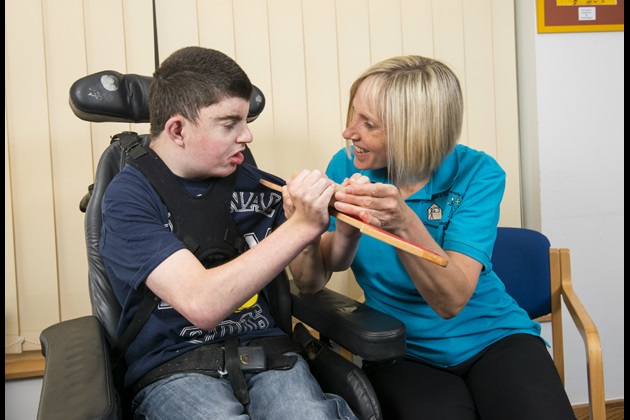When the special educational needs and disabilities (SEND) reforms were implemented in 2014, many gaps and inconsistencies in the provision of care were highlighted. This is despite the number of children with special needs, and the complexity of their health care requirements, ever-increasing.
RCN member Trudy Ward, who developed a tool to assess workforce needs in SEN schools across West Sussex, says: “Everyone has the right to have their health care needs met to a consistently high standard, but there is a lack of process and provision within SEN schools which poses serious health risks.”
Everyone has the right to have their health care needs met to a consistently high standard
When Trudy was asked to look at the care provision in her region, there was only one nurse working across three, out of a total of 12, special needs schools. Through the use of her workforce planning tool, which went on to win the RCNi Child Health Award, it was identified that nine of those schools needed their own dedicated clinical nurse.
“Having experienced nurses in schools and ensuring equity of provision is essential for safe and effective care.” says Trudy. “Children are at school for such a large chunk of their life and, without the correct nursing support in place, their complex health needs can’t be met and their ability to make the most of their school environment will be limited.”
On-site support
Thanks to Trudy’s assessment, schools and local clinical commissioning groups (CCGs) agreed to fund these nine positions. The nurses work within their local children’s community nursing teams and are each allocated to a specific school to both respond to the complex and fluctuating needs of children with life-limiting conditions, and to offer support and training to other health care and teaching staff.
Kate Short is one of the nurses working in this new role in one of the largest SEN schools in the area, with more than 200 pupils in her care.
“When I arrived to assess and start implementing clinical processes in the school, there was really nothing in place to guide or monitor the young people’s needs, care or staff training,” says Kate. “It’s a huge job and it’s still an ongoing process, but the positive difference over the past 18 months has been significant.”
Families of the children have also said what an immeasurable impact this has had on both their children and them. “Parents have reported an increased confidence in sending their children to school, safe in the knowledge that I have the clinical expertise and processes in place to take care of daily and more complex health needs.”
Off the back of this success, Trudy is collaborating with forum colleague Carol Williams in a wider review of workforce requirements, using the tool in special needs schools in West Sussex, Bradford, Sheffield and South Wales, with Kent aiming to be included. This review was instigated following an audit of nursing services in Bradford Special Needs Schools undertaken by Carol. The review has been established in conjunction with the RCN to inform future guidance.
Data collected will illustrate nursing needs across a large cross-section of the population and will hopefully support funding requirements for implementing appropriate and consistent nursing care in SEN schools nationwide.








